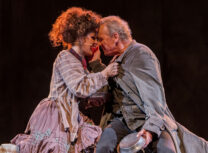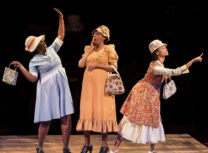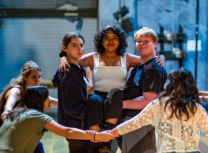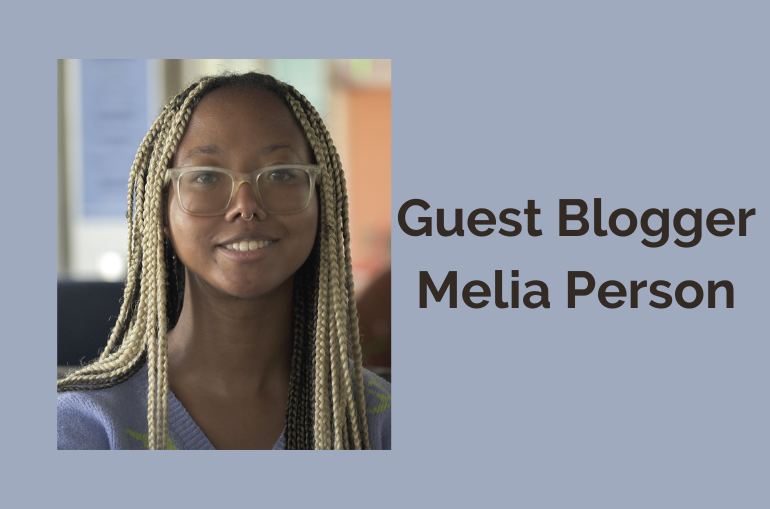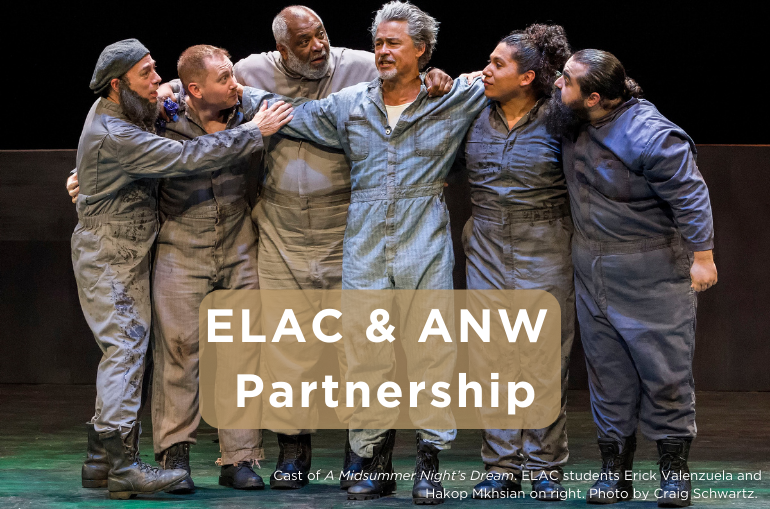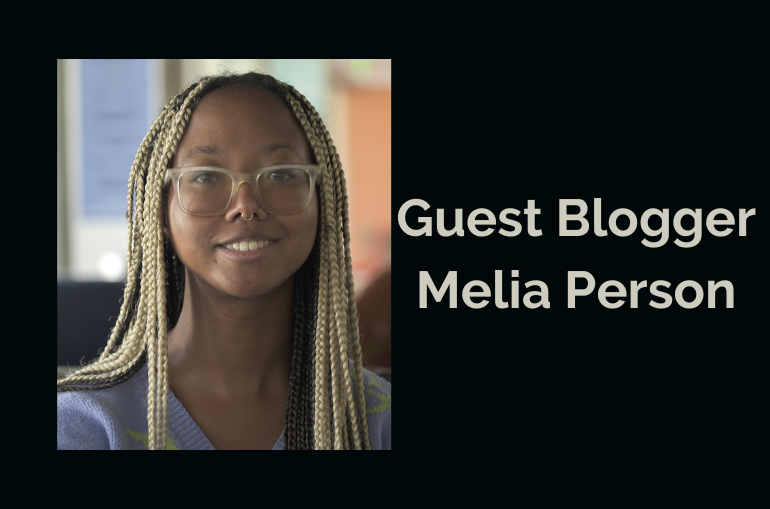Latinx Heritage Month Feature: Jonathan Muñoz-Proulx
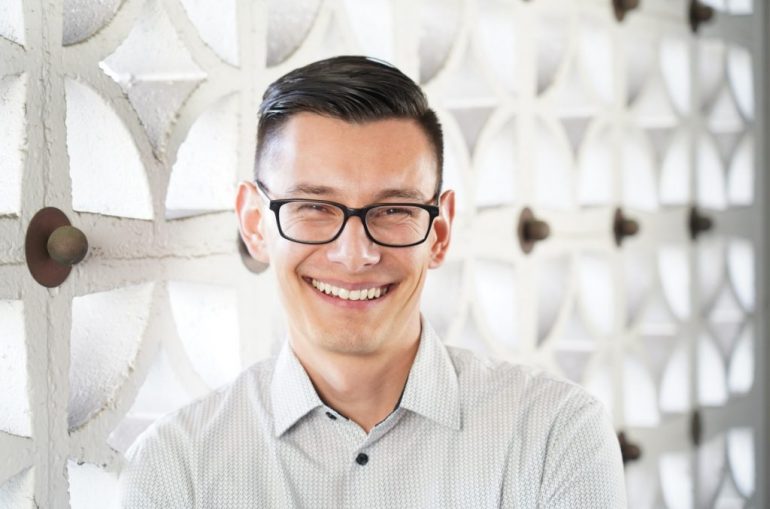
By A Noise Within
October 13, 2020
Director of Cultural Programming Jonathan Muñoz-Proulx tours us through his beginnings as an artist in the corporate world, to his present-day adventure as the director of Noise Now and as a prominent Los Angeles arts leader. Enjoy our latest Q&A feature for Latinx Heritage Month!
How did you get started on your theatre journey?
My parents took me to community theatre when I was a little kid. The first play I saw was Once Upon a Mattress in a middle school library, and I loved it. What really started me was when my high school theatre teacher took us to see a play at La Jolla Playhouse. Then I went to their summer acting conservatory and I joined, essentially, their student board of trustees. That was formative for me to be active in acting, artistry, and leadership as a young person. My work at La Jolla inspired me to study theatre at college.
How did you get to where you are now as the Director of Cultural Programming at ANW? What challenges did you face on the way?
I did not have much institutional support. I do have the privilege of having gone to USC and living in Los Angeles. But I did not go to grad school. I applied multiple years, but I didn’t get in. I applied to many fellowships, apprenticeships, and jobs but didn’t get any of them. For about 7 to 8 years, I was aggressively and actively applying for entry level opportunities at a theatre company. Even apprenticeships that were unpaid, or paid very little, required me to interview in New York. I was paying hundreds of dollars and losing work to fly there to interview for positions I wasn’t getting. There aren’t many opportunities for mentorship in Los Angeles for emerging directors and arts leaders, and the national opportunities are in New York. So I worked for 7 years in the for profit world, and I was not formally or professionally in theatre.
I did a lot of self educating. I watched all the Theatre Communications Group conferences remotely. I’d watch a TED talk every day to be curious about art, technology, entertainment, and design. I would read one play nearly every day. I went to the library once a week, and I had my grocery list of plays I wanted to read. I’d have about 30 books checked out at a time. I remember there was one time that I checked out a book about political theatre. When I went to check it out, the librarian paused and said “I ordered this book years ago, and you’re the first person to ever check it out.” I consumed everything I could.
I also saw theatre up to 4 times a week, and I was paying for these tickets. Even when I was making as little as $10.10 an hour, I was paying hundreds of dollars a month to see theatre because for me, that was nonnegotiable. That was my investment in my future. That was my grad school. I also did a lot of volunteering, which eventually turned into part-time work in the 99 seat theatre community. I bounced around as a freelance producer. I had consistent part-time work with Skylight Theatre and East West Players, but it wasn’t until ANW that I had full-time artistic work. I had been working toward that and getting rejections for 7 to 8 years, so that was a huge tipping point.
How did you find and end up at ANW?
This was the only time this has ever happened to me… I was looking for full-time work in theatre in LA for years, and this was the first time where four different people emailed me this job posting. “Have you seen this? You’re perfect for this.” The fact that four different people told me I needed to apply caused me to have an enthusiasm for this position that was fresh and exciting. I felt like this was a good position for me, because not only have I practiced consensus organizing and community building on individual projects, but I’ve also had experience producing theatre and managing a budget in the for-profit world that I could translate to building a program from scratch.
As a freelance artist, I’m used to being self-motivated and finishing my own projects. I loved the freedom ANW invited to imagine a program that had never existed before and could echo similar programs, but also had a very flexible path that I could turn into whatever I chose. The interview process was quite extensive. There was the application, there were multiple interviews, and the final interview was with the entire senior staff. I had to present a budget and a proposal for what a year in Noise Now would look like. I imagined what it could look like. I was able to excite everyone and bring a sense of clarity to the program. I was able to illuminate my commitment to putting community at the center of Noise Now. Beyond engaging the community and developing new audiences, it would actually put community in the driver’s seat. I think we’ve been able to do that quite successfully so far.
How does your culture, family background, and history influence your work?
I am committed to BIPOC stories. As frequently as I can, I champion Latinx stories, queer Latinx stories, queer multicultural Latinx stories. But beyond my identity, it’s important for me to be a champion for all underrepresented voices, BIPOC and beyond. I know that in my position, I have a seat at the table and a responsibility to advocate for voices that aren’t always in the room. Because this is a part of my identity, it was always obvious to me that this was important and missing from the American theatre. What I bring that’s unique is that I feel like an outsider in all of those communities. I feel like I am white, I am Latinx, I am queer. But I do not feel fully included or welcomed in any of those spaces. I don’t share that to say poor Jonathan. But I have familiarity understanding and advocating for intersectionality. I have a heightened awareness that even if we’re inclusive of a community, we can still alienate people within that community. I have noticed that even in the queer and Latinx communities, there aren’t enough intersectional voices. Not enough queer Latinx champions. Not enough multicultural or biracial champions.
The challenge is that I’ve experienced pushback for how authentic it is for me to champion Latinx identity, for example. Am I the one to advocate for these stories? My response to that is that I think everyone should advocate for those stories. Also, I do not pretend to be the poster child for Latinx identity, because it is so vast and intersectional. Not only am I not pretending to have a voice that isn’t mine, but I also recognize that if I chose to not speak, then folks like me would lose an advocate. It don’t think it’s “either or.” We need everyone’s voices at the table, and that includes folks that are bicultural and otherwise. I like to say I am 100 percent Mexican and 100 percent French. Period.
Out of all your accomplishments in theatre, what are you most proud of?
One is the big picture accomplishment of my advocacy. I know I’ve championed diversity, equity, and inclusion in traditionally white spaces. I’ve been in a lot of these spaces. Because of my corporate background, I am successful at bringing unfamiliar conversations to a company and building trust and buy in for new ideas. I’m proud of the changes to how inclusive the theatres I’ve worked at have become.
The other thing I’m most proud of is my 2018 production of One Flew Over the Cuckoo’s Nest, which took place in a warehouse where every audience member had to sign a waiver, change into hospital scrubs, and move freely about the hospital with the patients for 3 hours. It attracted a whole new audience for whom theatre was new. Every night, I’d go and ask people who they knew in the show, and they’d say: “Oh, I don’t know anyone. I’ve never been to play before.” Because it was immersive, it became an amusement park, escape room style event. It was so magical to not see the traditional theatre audience. Not even the LA theatre 99 seat audience, which is a lot of other artists, but to see people who had never seen a play yet came because of this immersive invitation. That was really special.
Who is your favorite Latinx author/playwright? Or alternatively, what’s your favorite Latinx play?
Hands down, Luis Alfaro. My favorite play of his is Oedipus El Rey because I am interested in hyper and toxic masculinity, but that play also has a queer bloodline through it. There is a sensuality, a use of breath, a use of ensemble, and a use of body and muscle and sweat that is physical and violent and visceral. But also sensual and sexual and queer. I find that play to not only be about masculinity, Latinx identity, and the Greeks, but also about bodies and breath and contact in a way that is poetic and rich.
